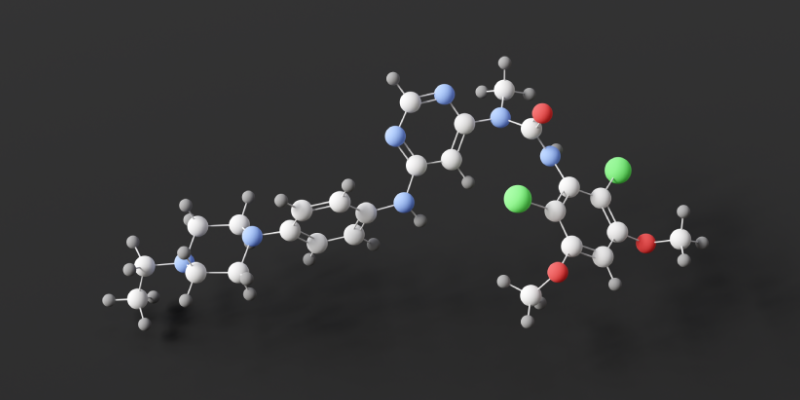In a recent study by the University of Texas Division of Cancer Medicine, researchers found that a drug commonly used to treat bile duct cancer could also be useful as a treatment for patients with upper tract urothelial cancer (UTUC). Infigratinib (brand name Truseltiq) showed significant activity in localized UTUC patients with specific mutations, according to the interim results of this study. While the research is in its early stages and additional information is required before it can be recommended to patients, oncologists believe these promising results warrant further research into infigratinib as a treatment for UTUC.
What is UTUC?
Urothelial cancer is a form of cancer that affects the lining of the urinary system. Approximately 90-95 percent of urothelial cancers occur in the bladder, while upper tract urothelial cancers (UTUCs) are comparatively rare. UTUCs affect the lining of the kidney (also known as the renal pelvis) or the ureter (a long tube that connects the bladder and kidney).
The lining of the bladder, kidney, and ureter are the same, which means urothelial cancers and bladder cancer share similarities. However, there are also significant differences between UTUC and bladder cancer.
UTUCs can develop as either low- or high-grade tumors. Most low-grade tumors are non-invasive and very rarely spread. However, they are more prone to recurrence and require treatment for visible tumors, along with treatments designed to preserve the urinary tract. High-grade UTUC is much more likely to spread and is most commonly treated with surgical removal of the kidney and ureter – an operation known as radical nephroureterectomy.
Oncologists believe that there is a large need for better treatments for both low-grade and high-grade UTUC. Treatment strategies should prioritize caring for patients with reduced kidney function. The majority of past research has focused on urothelial cancers in the bladder, rather than UTUC.
Participants in the UTUC Infigratinib Study
In this study, researchers evaluated the use of infigratinib before surgery in patients with UTUC. The 12 patients who participated in the study all had FGFR3 mutations, and 11 of these 12 were considered evaluable. The study was limited to patients with low-grade or localized cisplatin-ineligible high-grade UTUC who are currently going through either ureteroscopic (URS) management or nephroureterectomy/urethrectomy (NU/U).
Additional requirements for participants included:
- Glomerular filtration rate of at least 30
- Sufficient biopsy tissue for mutational analysis
- Tumor map of all residual tumors following endoscopic biopsy and any ablation
Methodology and Results
The 11 evaluable patients were given two cycles of 125mg infigratinib doses orally for 21 days in a 28-day cycle. Following the second cycle, the participants underwent tumor mapping based on either URS or NU/U. Researchers were primarily evaluating whether the patients could tolerate this dosage, as well as an objective response based on tumor mapping, analysis of circulating cell-free DNA, marker expression, and FGFR3 alteration types.
After the two cycles of infigratinib, the patients undergo one of two treatments based on the recommendations of Dr. Surena Matin, Dr. Mehrad Adibi, or other urologists:
- Laser therapy for residual cancer with the goal of preserving the kidney
- Nephroureterectomy
Nine of the 11 evaluable patients in the trial completed therapy and two continued with treatment. Of the nine who completed therapy, two reported toxicities that prevented them from completing the full treatment schedule, while four showed a response of tumor reduction between 25 and 83 percent. All of the responding patients had FGFR3 mutations. In the non-responding group, the majority had a history of bladder cancer and one had FGFR3-TACC3 fusion.
In summary, the trial showed that infigratinib sparked significant activity and showed tolerability in patients with localized UTUC and FGFR3 mutations.
Next Steps
This phase 1B clinical trial remains ongoing, and these preliminary results only evaluate an early group of patients treated in the study. In an interview with Targeted Oncology, Dr. Matthew T. Campbell, MD, discussed the results of the study and what the researchers hope to discover as the ongoing research continues.
The researchers hope to determine whether it is possible to conduct therapies for UTUC patients and prevent them from losing the ureter in their kidneys. These patients often struggle with limited kidney function, which often leads to cancer in one or both ureters, the renal pelvis, and occasionally the bladder. These issues can lead to major complications.
The team hopes to determine how to maximize the effectiveness of this therapy, including potentially altering the treatment timeline or introducing other treatments as a combination strategy.
According to Campbell, the researchers are planning to report the final results and follow up with an expanded phase 2 study. They are hopeful that this study will be fully accrued by the end of the year, and that the final results can be reported around one year from now. The team is currently discussing the next phase and are hoping to open it in the near future.

